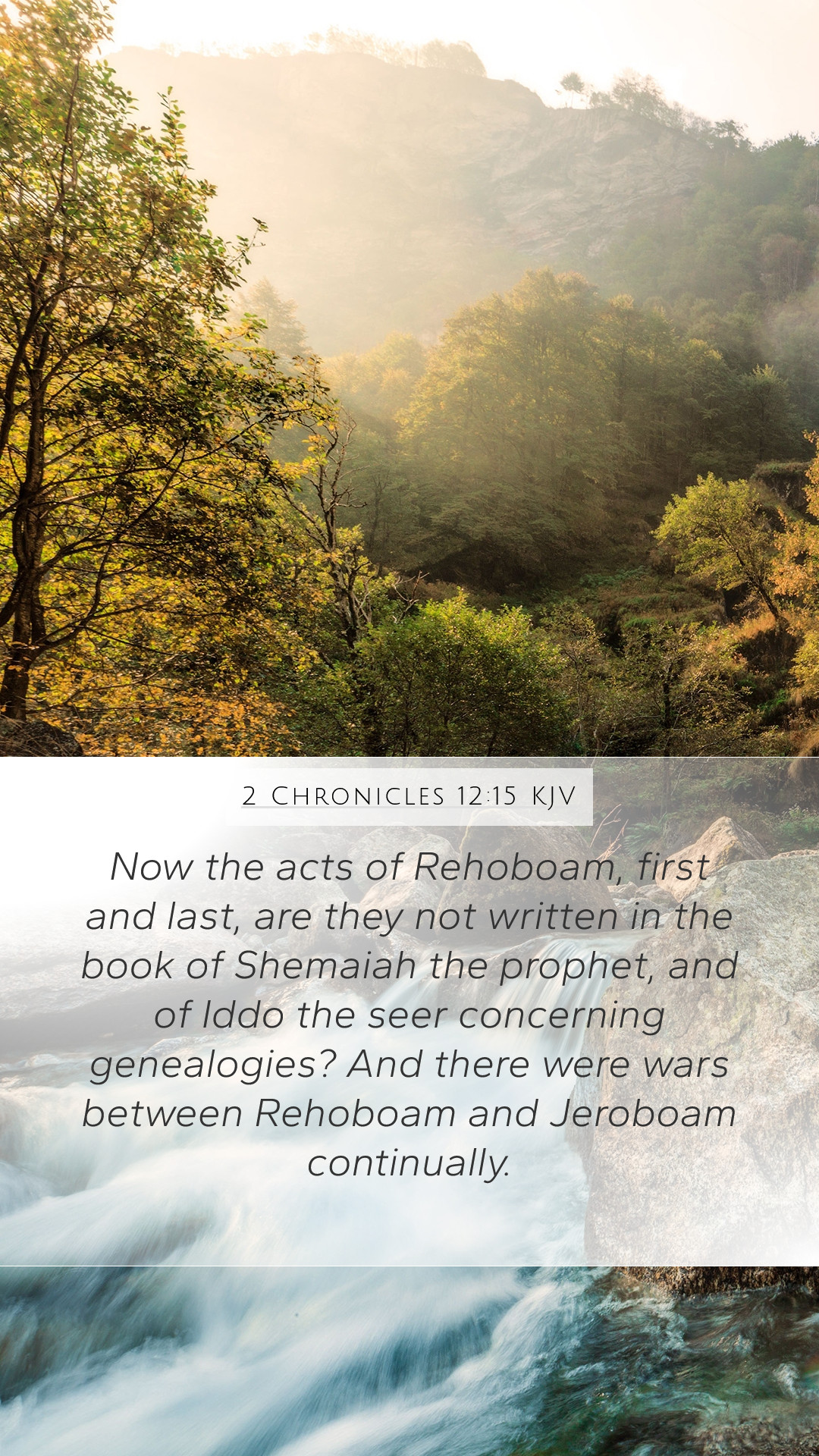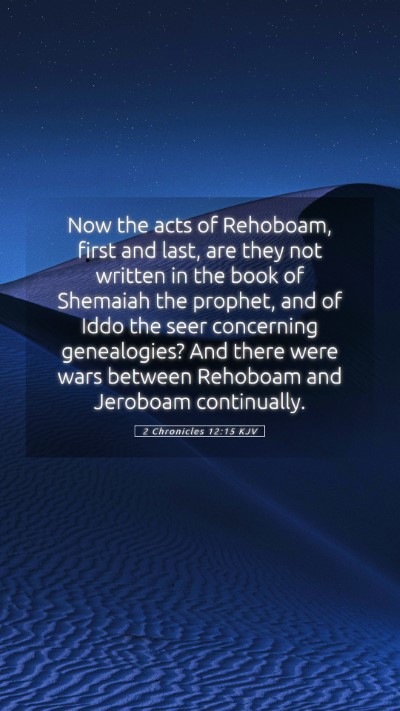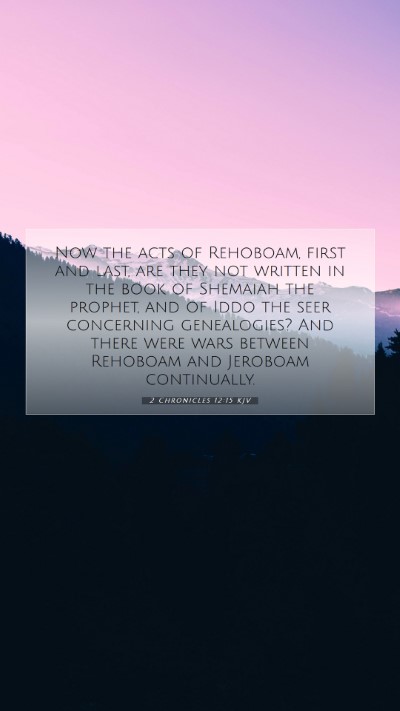Bible Verse Meaning: 2 Chronicles 12:15
The verse 2 Chronicles 12:15 reads: "Now the acts of Rehoboam, first and last, are they not written in the book of Shemaiah the prophet, and of Iddo the seer, concerning genealogies? And there were wars between Rehoboam and Jeroboam continually."
Overview of the Verse
This verse serves as a conclusion to the account of Rehoboam's reign, emphasizing the importance of prophetic writings and chronicling the ongoing conflict between Rehoboam and Jeroboam. It highlights the historical context and significance of their tumultuous reigns, which plays a critical role in the understanding of the divided kingdom of Israel.
Commentary Insights
-
Matthew Henry's Commentary:
Matthew Henry emphasizes that the acts of Rehoboam, both the good and the bad, are important for learning. He notes that Rehoboam's reign is marked by his foolish decisions which led to a divided kingdom. Insight into prophetic documentation (Shemaiah and Iddo’s writings) reinforces the legitimacy of scripture as a record of God’s dealings with His people.
-
Albert Barnes' Notes:
Albert Barnes points out the difference between the kings of Judah and Israel, particularly highlighting that Rehoboam's choices led to consistent warfare with Jeroboam. He explains that these accounts serve as both history and lessons for future generations, providing a contrast between the faithfulness and infidelity of rulers.
-
Adam Clarke's Commentary:
Adam Clarke adds depth by discussing the importance of the written records of prophets in validating the historical narrative of Israel's kings. He notes that the continual conflict symbolizes the consequences of turning away from God and sets a precedent for understanding the violent state of Israel during the divided monarchy.
Historical Context
To fully grasp the meaning behind 2 Chronicles 12:15, one must consider the historical context. This period was marked by division after Solomon’s reign, with Jeroboam leading the northern tribes and Rehoboam ruling the southern tribes of Judah. The prophesied division was realized due to Rehoboam's unwise counsel and harsh policies.
Theological Significance
The mention of prophetic books like those of Shemaiah and Iddo signifies the essential role of prophetic voices in guiding Israel’s leaders. It implies that Scripture should guide believers in every era. The idea of continuing warfare reflects the spiritual and physical struggles that arise from disobedience to God’s commandments.
Application in Modern Life
Understanding 2 Chronicles 12:15 can lead to rich insights for modern believers:
- Encouragement to seek wise counsel and guidance in leadership.
- Recognition of the consequences of poor decisions and leadership failures.
- Appreciation for the historical context of Scripture as it contributes to our understanding of God’s faithfulness.
- Realization of the importance of enduring conflicts in the journey of faith, reflecting the contentions of Rehoboam and Jeroboam.
Bible Study Insights
This verse provides ample opportunity for Bible study groups and personal study:
- Bible study topics: The historical context of Rehoboam and Jeroboam.
- Bible study materials: Utilize commentaries, concordances, and historical context tools.
- Online Bible study courses: Take advantage of resources that explore Old Testament history and prophetic literature.
Related Bible Cross References
- 1 Kings 12:1-24: The account of the division of the kingdom.
- 2 Chronicles 10: The context of Rehoboam’s decision-making.
- 2 Chronicles 11:4: Prophetic assurance to Rehoboam not to engage in war.
- 1 Kings 14:30: Describes the conflict and interactions between the two kingdoms.
- 2 Chronicles 13: Further details on the wars between Rehoboam and Jeroboam.


